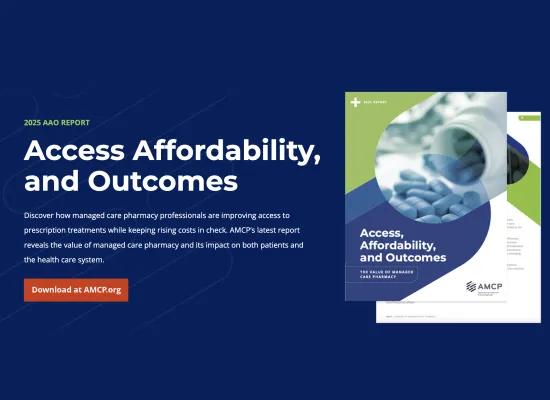
AMCP Releases Consensus Recommendations Proposing the Creation of a Safe Harbor for Preapproval Information Exchange (PIE)
Alexandria, Va., Jan. 10, 2017 — The Academy of Managed Care Pharmacy (AMCP) has released a set of consensus recommendations to allow biopharmaceutical companies to proactively share clinical and economic information with population health decision makers on emerging therapies in advance of Food and Drug Administration (FDA) approval, an area that is significantly restricted by current federal laws and FDA regulations.
Over the past several years, population health decision makers have expressed a need for proactively receiving this information in advance of FDA approval, as long as appropriate safeguards are put into place to prevent this information from reaching unintended entities.
The recommendations to enable Preapproval Information Exchange (PIE) stem from a recent AMCP partnership forum of stakeholders representing managed care, biopharmaceutical manufacturers, health economists, academia, providers, patients and others. Key among the recommendations is that a safe harbor be created for PIE to allow biopharmaceutical manufacturers to proactively share clinical and economic information about emerging therapies with population health decision makers at least 12 to 18 months prior to FDA approval to encourage better decision making.
“Enabling proactive dissemination of this information would allow population health decision makers to support more accurate forecasting and rate setting, which would facilitate affordable access for patients to new therapies upon FDA approval,” said AMCP CEO Susan A. Cantrell, RPh, CAE. “It also would increase the use of value-based payment models by providing sufficient time to implement these models in a timely and effective manner upon FDA approval. In addition, proactive dissemination would expedite coverage decisions for emerging therapies granted breakthrough designation immediately upon FDA approval, which will help patients with rare, serious and life threatening diseases.”
Other recommendations include:
- PIE should be limited to a narrow audience: biopharmaceutical manufacturers and population health decision makers only.
- PIE should be limited to new molecules and expanded indications only.
- Exchange of information under PIE should be bidirectional and continue until FDA approval.
- The safe harbor should allow sharing of information that does not necessarily have to be clinical or scientific evidence.
- Information shared under PIE should meet the truthful and non-misleading standard and the methods used to derive the information should be transparent, disclosed, reproducible, accurate and valid.
- A specific format or process for PIE should not be prescribed in legislation, but should be developed collaboratively between the manufacturers and population health decision makers who would be exchanging this information.
The full recommendations were published in the January 2017 issue of AMCP’s Journal of Managed Care & Specialty Pharmacy (www.jmcp.org), and can be accessed at http://bit.ly/PIEproceedings.
AMCP will lead advocacy efforts to adopt the recommendations from the partnership forum and looks forward to working with the new Administration, Congress and FDA to enable PIE.
The AMCP partnership forum was supported by AbbVie, Boehringer Ingelheim, Bristol-Myers Squibb, Celgene, Intarcia Therapeutics, Eli Lilly and Company, GlaxoSmithKline, Merck, National Pharmaceutical Council, Novo Nordisk, Pfizer, Pharmaceutical Research and Manufacturers of America, Precision for Value, Sanofi, Takeda and Xcenda.
Featured News & Resources
See Full CalendarAward Applications Open
AMCP eLearning Day: Nexus Encore
AMCP 2026 Registration Opens
Upcoming Events
AMCP offers a wide variety of educational opportunities, from events and webinars to online training.







